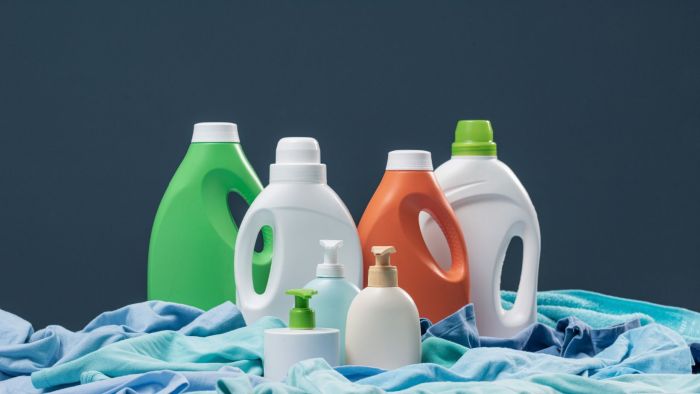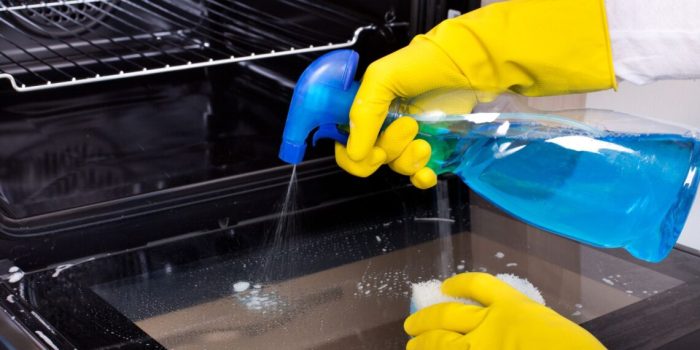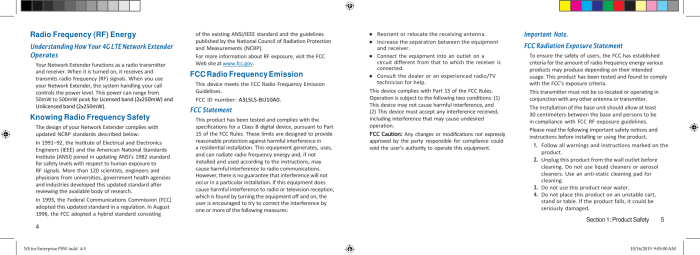When a food handler notices cleaning liquid has just been sprayed, it is crucial to take immediate action to ensure the safety of both the handler and the food being prepared. This guide provides a comprehensive overview of the potential hazards, immediate actions, reporting procedures, and preventive measures associated with cleaning liquid spills in food handling areas.
Understanding the risks associated with cleaning liquids and their fumes is essential for maintaining a safe and hygienic work environment. Specific chemicals commonly found in cleaning liquids and their potential effects on the human body will be discussed, emphasizing the importance of proper ventilation to prevent inhalation and skin exposure.
Potential Hazards and Risks

Cleaning liquids can pose significant health risks due to the presence of various chemicals. These chemicals can be harmful when inhaled, ingested, or absorbed through the skin. Some common chemicals found in cleaning liquids and their potential effects include:
- Chlorine bleach:Corrosive to the skin, eyes, and respiratory system. Can cause irritation, burns, and respiratory problems.
- Ammonia:Irritating to the eyes, nose, and throat. Can cause respiratory distress, burns, and corneal damage.
- Sodium hydroxide (lye):Highly corrosive and can cause severe burns to the skin and eyes. Can also damage internal organs if ingested.
- Hydrochloric acid:Corrosive to the skin, eyes, and respiratory system. Can cause burns, irritation, and respiratory problems.
Proper ventilation is crucial when using cleaning liquids to prevent inhalation and skin exposure. Open windows, use fans, or turn on exhaust systems to ensure adequate air circulation.
Immediate Actions
If a food handler notices cleaning liquid has been sprayed, the following steps should be taken immediately:
- Ventilate the area:Open windows, turn on fans, or use exhaust systems to dissipate fumes.
- Wear protective gear:Put on gloves and a mask to protect the skin and respiratory system.
- Clean up the spill:Use absorbent materials, such as paper towels or spill kits, to soak up the cleaning liquid. Dispose of the absorbent materials properly.
- Report the incident:Inform supervisors or management about the incident immediately.
Reporting and Communication

It is important to report any incidents involving cleaning liquids to supervisors or management. This allows them to assess the situation, take appropriate action, and prevent similar incidents from occurring in the future.
When reporting an incident, provide the following details:
- Type of cleaning liquid involved
- Location of the incident
- Time of the incident
- Any injuries or symptoms experienced
Prevention and Mitigation: A Food Handler Notices Cleaning Liquid Has Just Been Sprayed

To prevent accidental spraying of cleaning liquids in food handling areas, the following recommendations should be implemented:
- Store cleaning liquids properly:Keep cleaning liquids in a designated, locked area away from food and food contact surfaces.
- Handle cleaning liquids with care:Avoid spraying cleaning liquids directly towards people or food.
- Provide adequate training:Train food handlers on the safe use of cleaning liquids, including proper storage, handling, and disposal techniques.
FAQ Explained
What are the immediate steps a food handler should take upon noticing cleaning liquid has been sprayed?
Upon noticing a cleaning liquid spill, the food handler should immediately stop using the liquid, evacuate the area, and notify a supervisor or manager.
How should cleaning liquids be safely disposed of?
Cleaning liquids should be disposed of according to the manufacturer’s instructions and local regulations. This may involve diluting the liquid with water and pouring it down the drain or contacting a waste disposal company for proper disposal.
Why is it important to report any incidents involving cleaning liquids to supervisors or management?
Reporting incidents helps management identify and address potential hazards, implement corrective actions, and prevent similar incidents from occurring in the future.